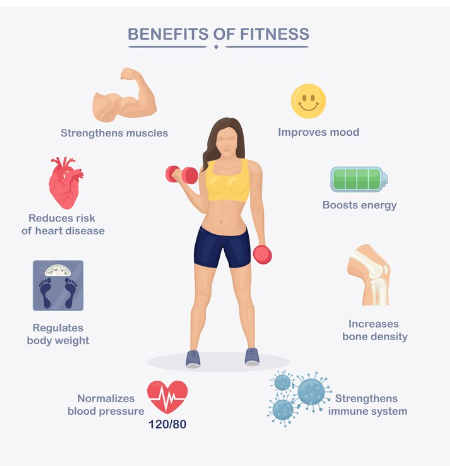
Long-term problems often result from jobs that require a lot of sitting, especially when one is glued to a desk for extended periods of time. This is typically made worse if you engage in little physical activity aside from your job at the office. The following are some exercises to decrease physical stress brought on by extended work hours. These can aid you but cannot be a substitute for exercise.
- Desk Exercises: Try to incorporate quick desk exercises into your job to stretch and relax your muscles. Exercises for the wrists, neck stretches, and shoulder rolls are some examples of activities that can help reduce stress and avoid stiffness.
- Mindfulness Meditation: To clear your mind, lower your stress, and sharpen your attention, try a few quick mindfulness meditation sessions at your desk. A broad topic in and of itself is mindfulness. A holistic approach entails keeping your attention on the here and now and avoid worrying on the past or pondering about the future. Your productivity can increase if you take a few minutes to be present and concentrate on your breathing.
- Walking discussions while on the phone: Consider having your phone conversation while you are walking around rather than sitting at a desk or in a meeting space. In addition to getting your blood flowing, talking while walking can encourage creativity and offer a welcome change of scenery from the workplace atmosphere.
- Healthy Snack Choices: Select healthy snacks like fruits or nuts over processed or sweet ones. Maintaining your energy levels and enhancing your digestion and general well-being can be achieved by keeping healthy options at your workplace.
- Standing Desks or Ergonomic Setups: To encourage better posture and lower the chance of discomfort or repetitive strain injuries, use a standing desk or modify your workstation ergonomically.
- Plants: Workplace plants can enhance air quality, lessen stress, and create a cozier, more soothing atmosphere.
- Brain Teasers and Puzzles: Play puzzles or brain teasers during short breaks. These pursuits can sharpen your cognitive skills and stimulate the mind.
- Inspirational Quotes: To increase motivation and have a happy attitude throughout the day, post motivational quotes or affirmations near your workplace.
- Mini Breaks: Every hour, take a brief break to stretch, go for a stroll, or talk with coworkers. These quick breaks can help workers stay motivated and avoid burnout.
Benefits of Exercises

- Healthier lifestyle: Regular exercisers are less prone to develop chronic diseases like diabetes and hypertension. In addition, being physically active lowers your risk of contracting the flu or a cold, which results in fewer missed workdays and can help you be more productive at work than your sedentary coworkers.
- Mental alertness: You become more intellectually attentive because of increased blood flow to the brain from physical activity. You will be able to stay awake and concentrate better because of this improved sharpness.
- Increased energy: Anyone who frequently engages in physical activity will attest to the fact that, despite first making you feel more exhausted, it eventually leads to an increase in energy. Being less prone to mid-afternoon brain fog will increase productivity at work and lessen the need for caffeine or sugary snacks as a pick-me-up.
- Mood enhancement: You can naturally raise your serotonin and endorphin levels by engaging in physical activity. Your mood improves and your risk of developing depression decreases as these hormone levels rise.
- Impulse control: You’ll be less likely to get sidetracked by a game of Candy Crush or a Facebook check-in if your endorphin levels rise because of exercise. Additionally, endorphins aid in job prioritization and distraction avoidance during the course of a workday.
How can you fit these exercises into your busy schedule?

- Start small: Ranking your plan’s likelihood of success is a terrific concept. Be completely honest with yourself. Reduce the effort if it is not a 9 or a 10 out of a possible 10. It is preferable to walk for 30 seconds and establish a habit that you can build on in a month than to set a target of 30 minutes and fail to meet it.
- Have fun: Pick a workout you enjoy. If you do not like any of them, make an incentive. Search for an app that turns it into a game or treat yourself. Another enjoyable technique to maintain good health is to work out with a buddy.
- Overcome barriers: Equipment, nutrition, and tracking information are unimportant. Each of those steps is acceptable, but further work quickly destroys new habits. You’ll advance more quickly the more hurdles you remove.
- Schedule it: Put a reminder for exercise on your calendar or make it a habit all on its own. Exercise can be a part of your daily habit if you stick to the same morning routine (which you should).
Finding a balance between job and personal well-being is crucial. These activities can contribute to a happier and healthier workplace. This may lead to better overall performance and higher levels of job satisfaction.




